Find Help
More Items From Ergsy search
-
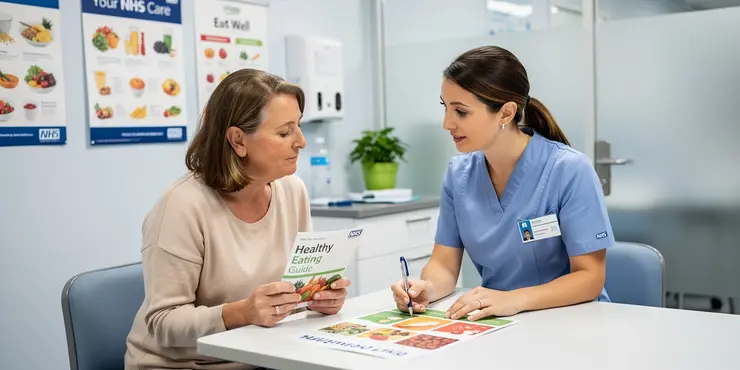
Living with early stage kidney disease
Relevance: 100%
-
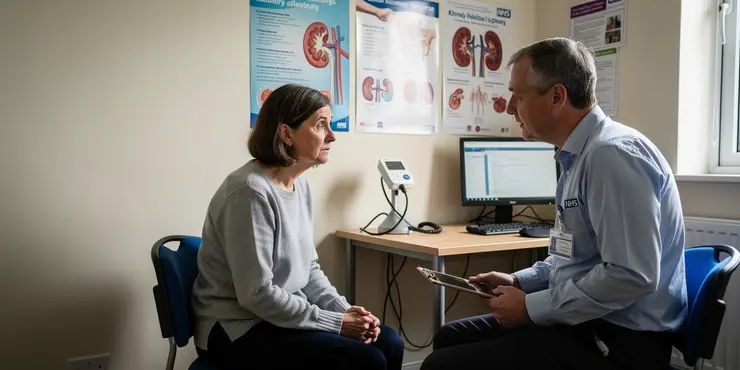
What is my risk of kidney failure with CKD (chronic kidney disease) | UHL NHS Trust
Relevance: 55%
-
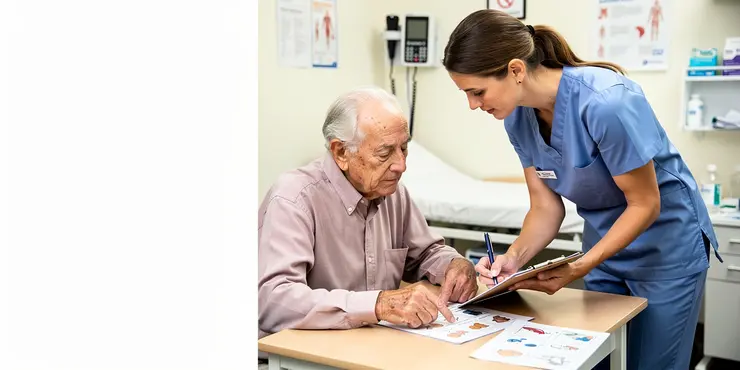
What are the stages of Alzheimer's disease?
Relevance: 52%
-
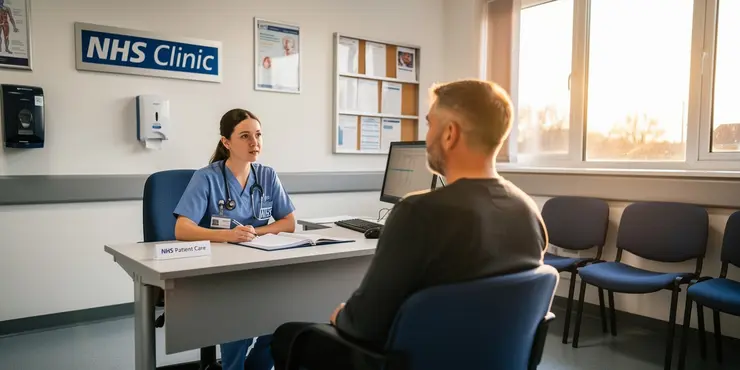
Chronic kidney disease: What are the treatments?
Relevance: 50%
-
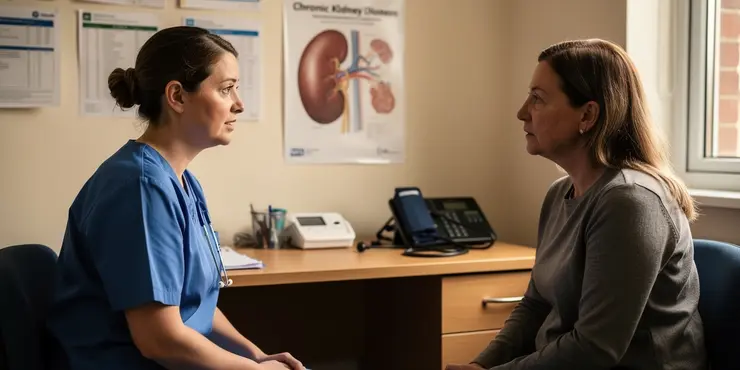
What causes chronic kidney disease?
Relevance: 50%
-
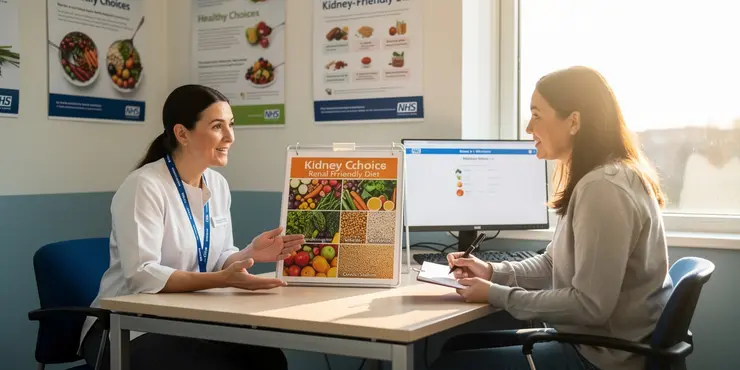
What should I eat to help with chronic kidney disease?
Relevance: 46%
-

NHSGGC - Diet and Chronic Kidney Disease (CKD)
Relevance: 43%
-
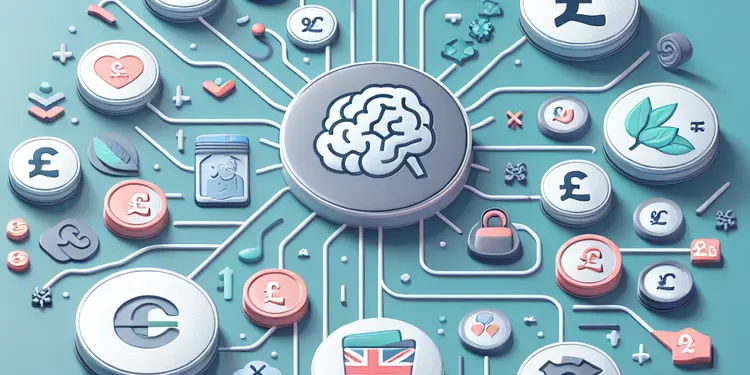
How can carers plan for future stages of Alzheimer's disease?
Relevance: 38%
-
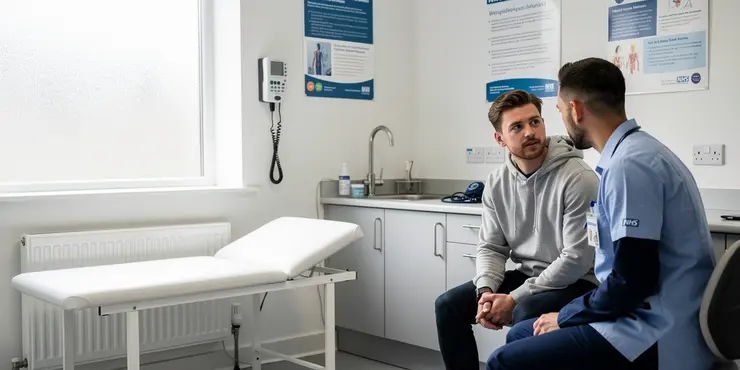
What are the stages of testicular cancer?
Relevance: 37%
-
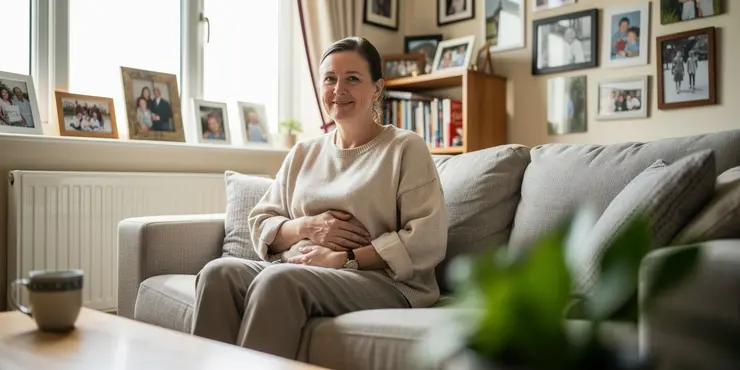
Patient Stories - Having a kidney transplant
Relevance: 36%
-
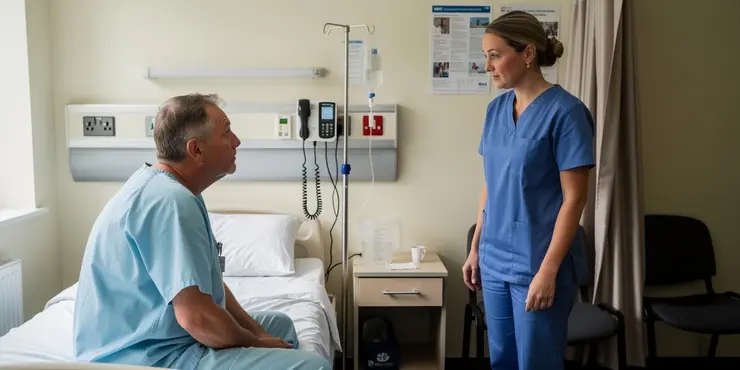
Having a kidney transplant
Relevance: 36%
-
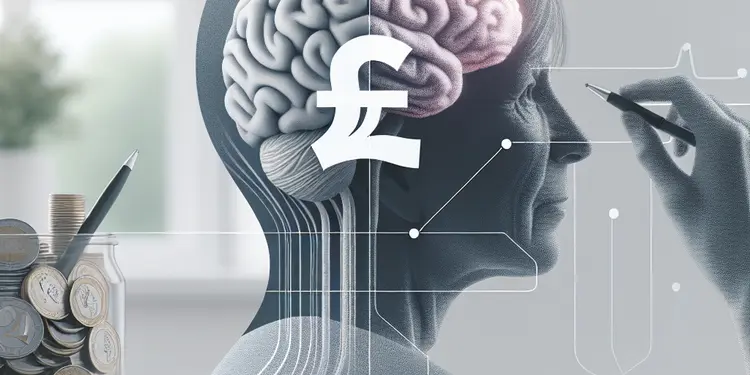
What symptoms can overlap between menopause and the early stages of dementia?
Relevance: 35%
-
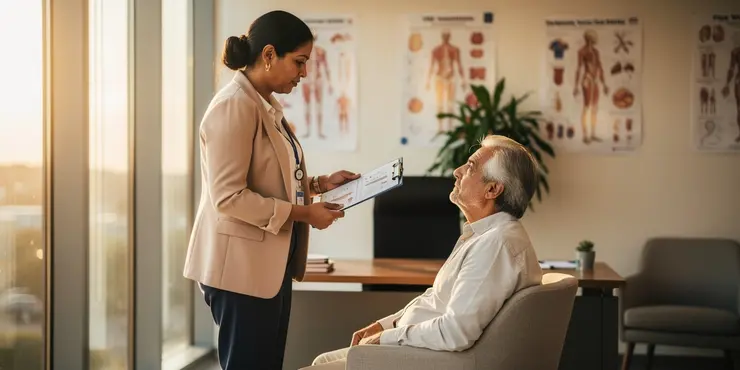
Does Ozempic have an impact on kidney function?
Relevance: 34%
-
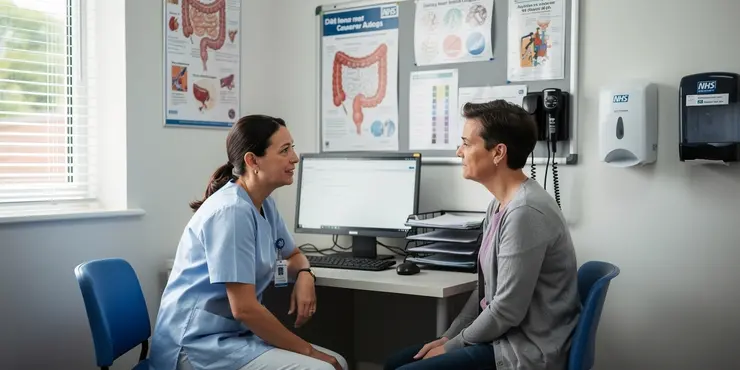
How is the stage of bowel cancer determined?
Relevance: 34%
-
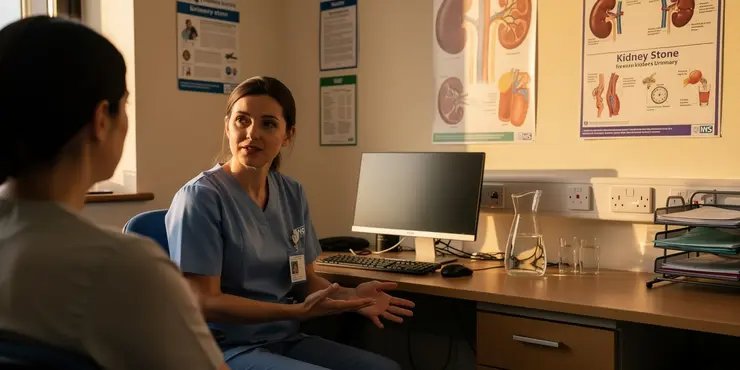
What are kidney stones?
Relevance: 33%
-
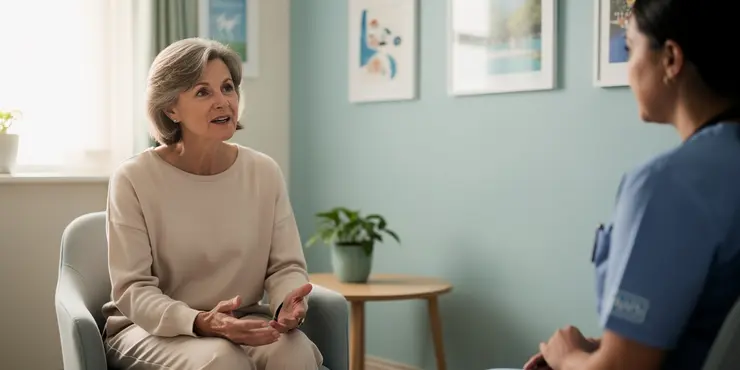
Early onset dementia | NHS
Relevance: 32%
-
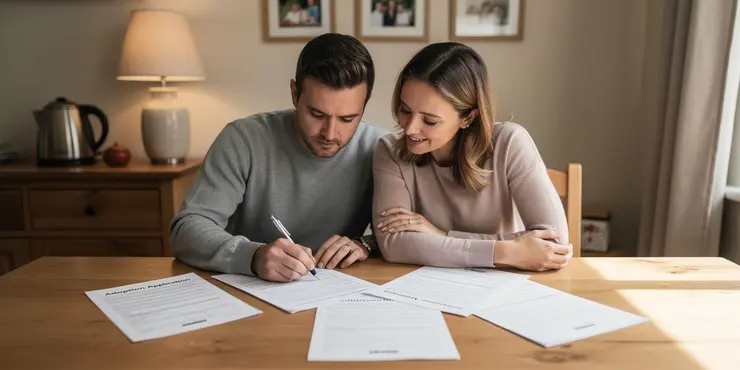
Stage One Paperwork | UK Adoption Journey
Relevance: 32%
-
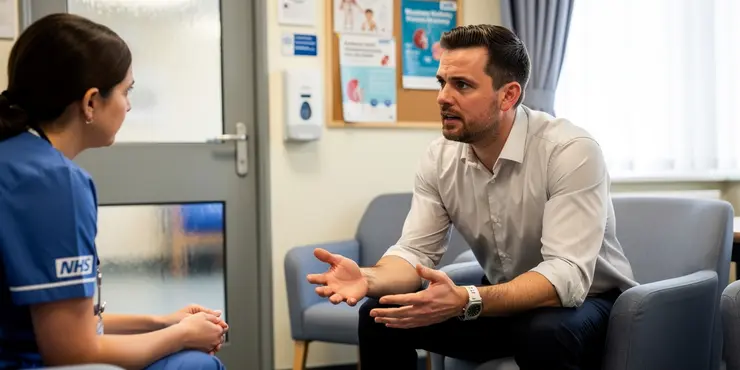
Matthew's Story: Kidney Transplant - Part 1
Relevance: 31%
-
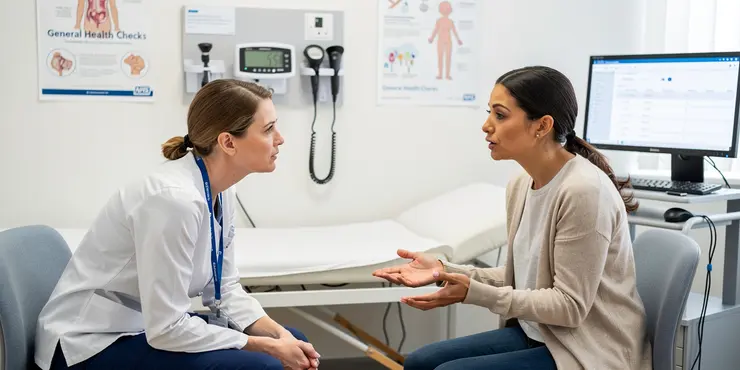
Can Lyme disease be treated?
Relevance: 30%
-
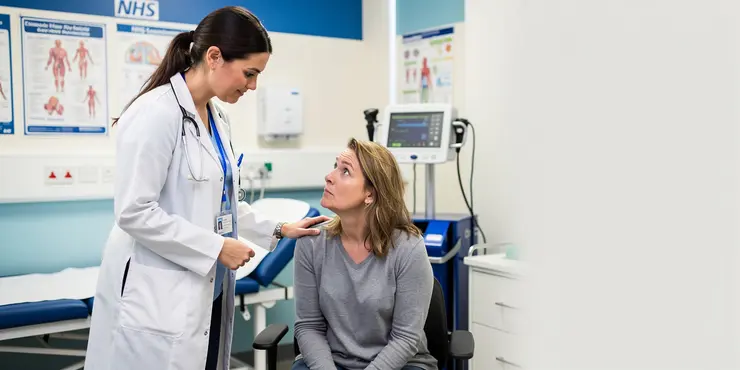
What are common symptoms of Lyme disease?
Relevance: 29%
-
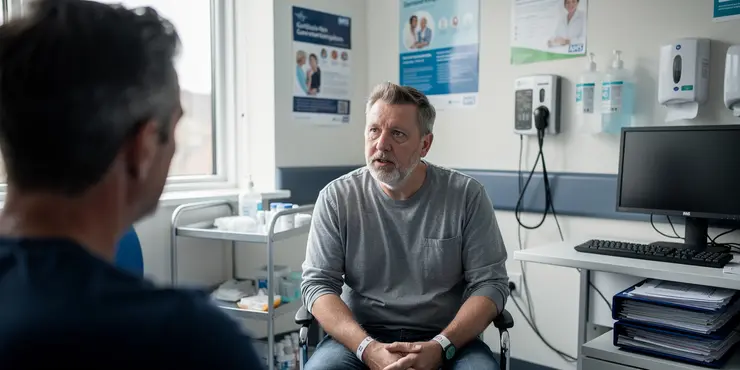
Kidney transplant waiting stories – DJ Ace and Lauren | NHS Organ Donation
Relevance: 28%
-
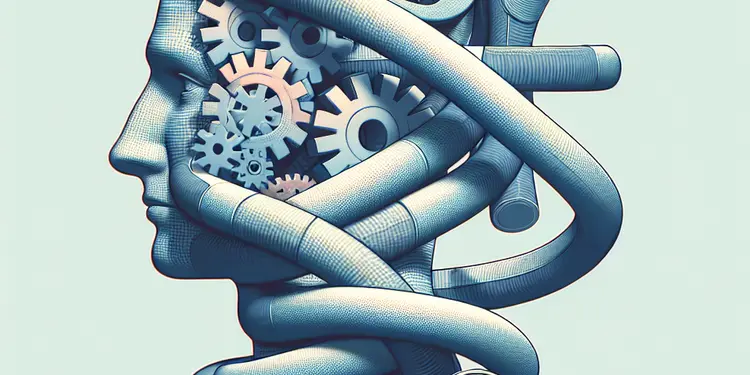
Is Huntington's disease fatal?
Relevance: 28%
-
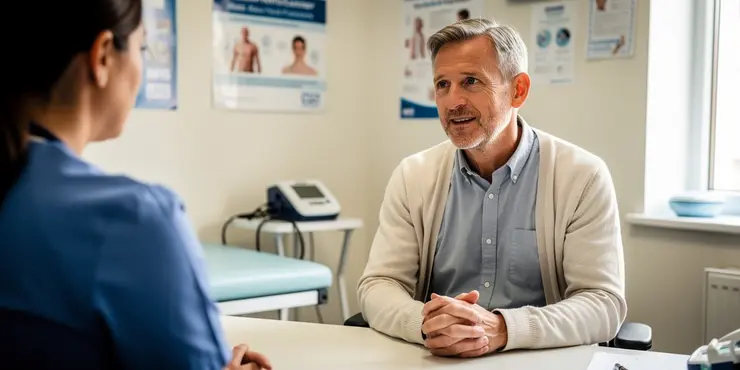
Prostate cancer symptoms - detecting them early
Relevance: 28%
-
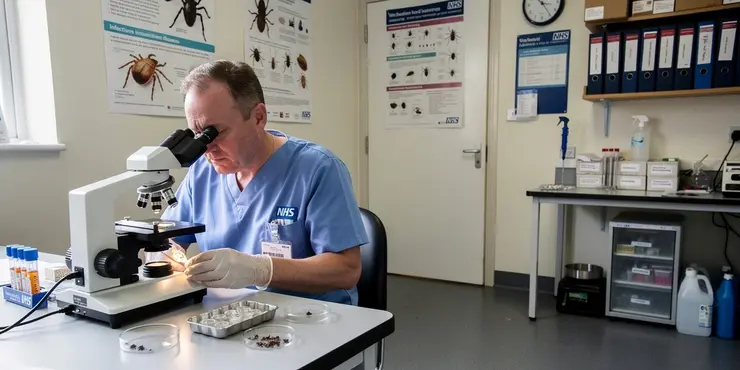
What kind of ticks carry Lyme disease?
Relevance: 28%
-
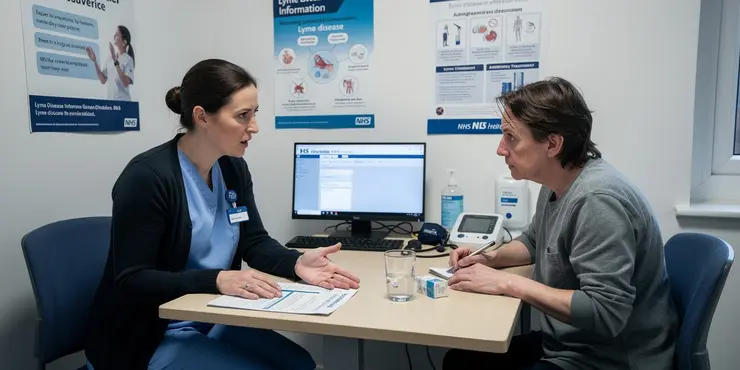
How effective are antibiotics in treating Lyme disease?
Relevance: 28%
-
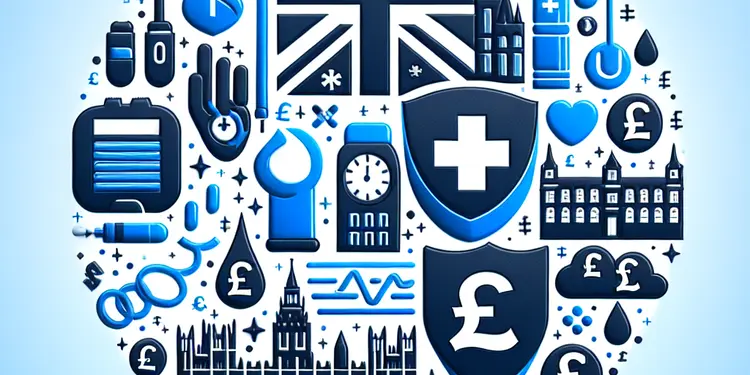
What are the benefits of early detection of type 1 diabetes?
Relevance: 27%
-
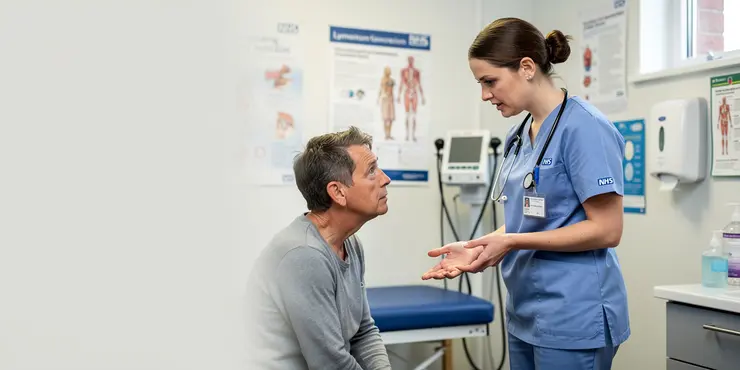
What is Lyme Disease?
Relevance: 27%
-
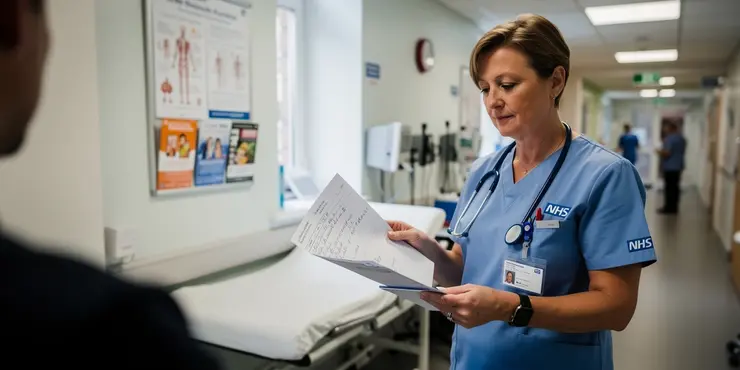
What is the typical progression of Marburg virus disease?
Relevance: 26%
-
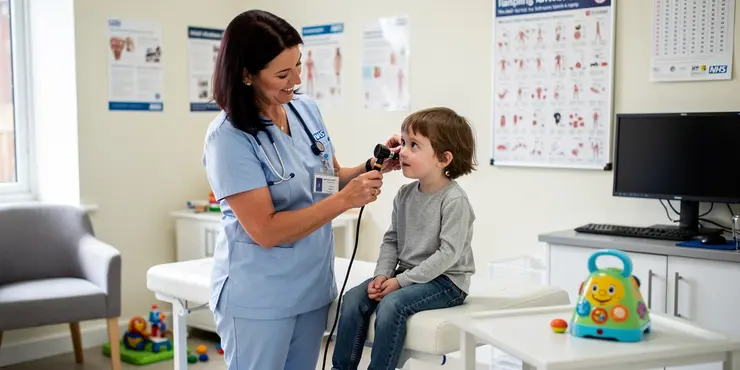
Glue Ear Pathway
Relevance: 26%
-
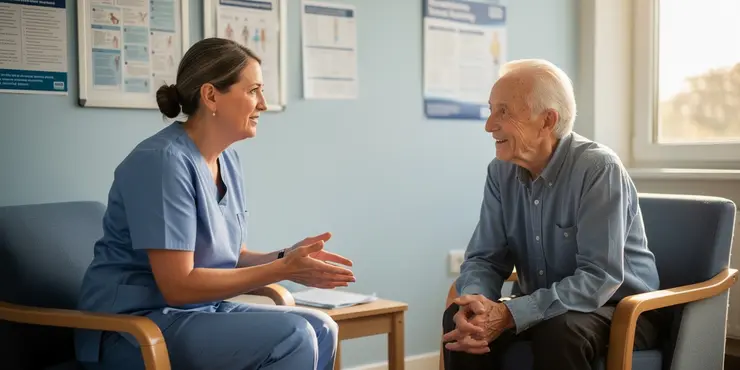
What is Alzheimer's disease?
Relevance: 26%
-
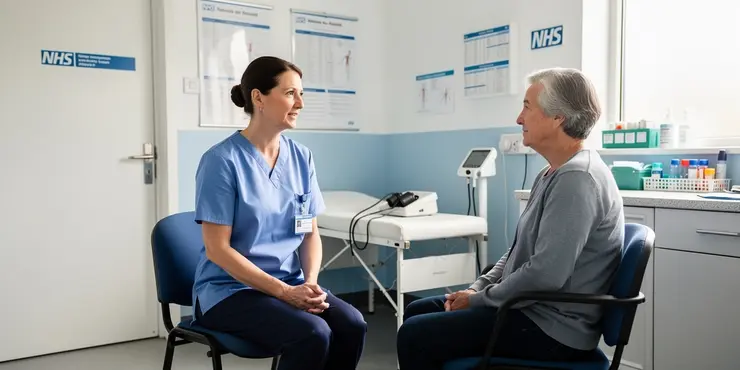
What are the symptoms of Marburg virus disease?
Relevance: 26%
-
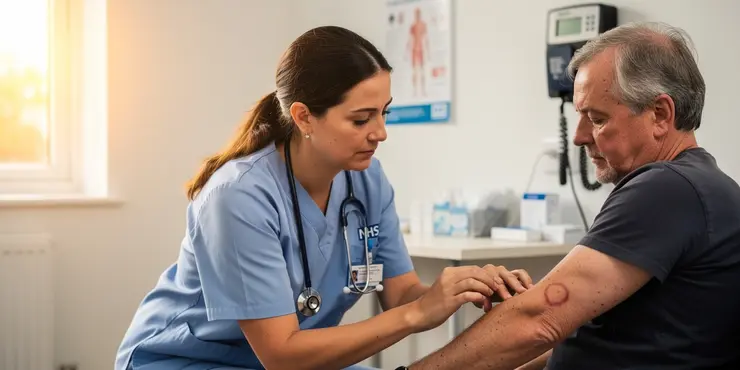
Lyme disease: What is it?
Relevance: 26%
-
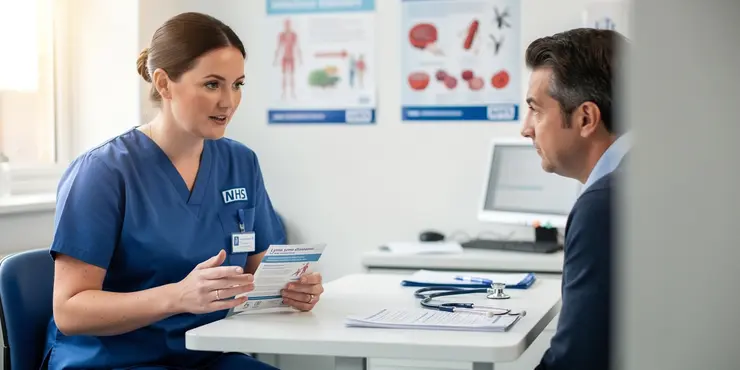
What tests are available for diagnosing Lyme disease?
Relevance: 26%
-
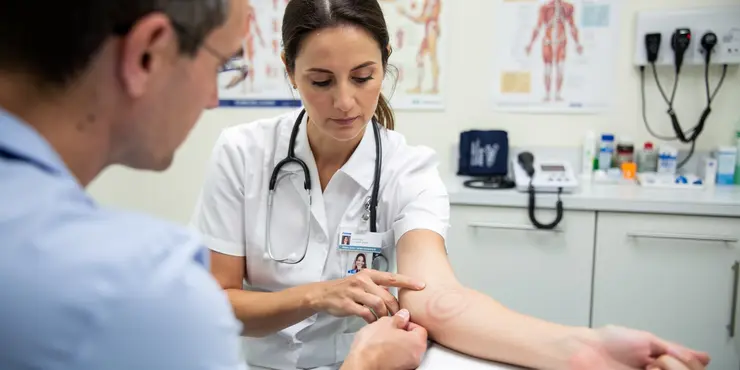
What happens if Lyme disease is left untreated?
Relevance: 25%
-
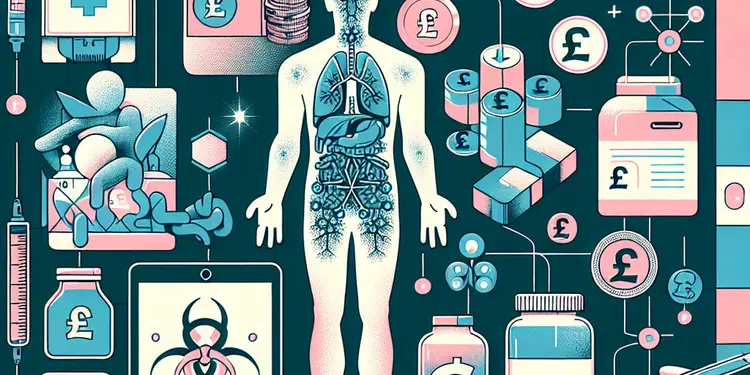
What are the symptoms of flesh-eating disease?
Relevance: 25%
-
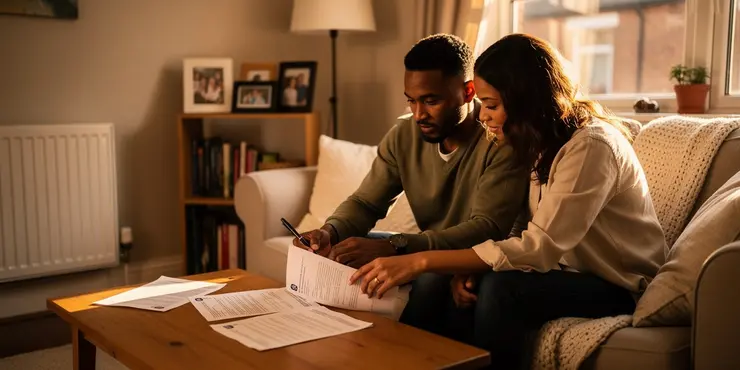
UK Adoption Journey | What we did to prepare | Stage One Update
Relevance: 25%
-
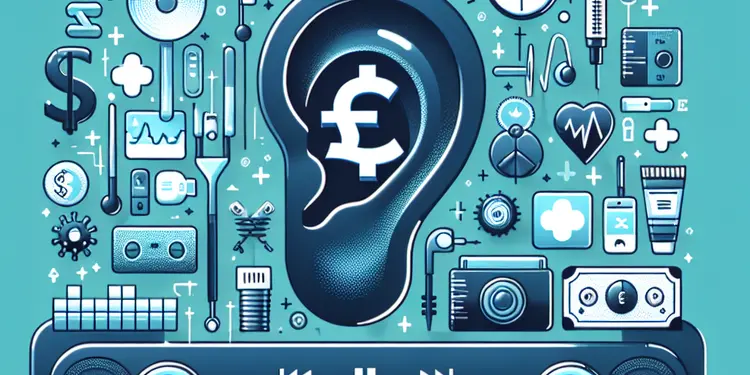
Can ear infections lead to tinnitus?
Relevance: 25%
-
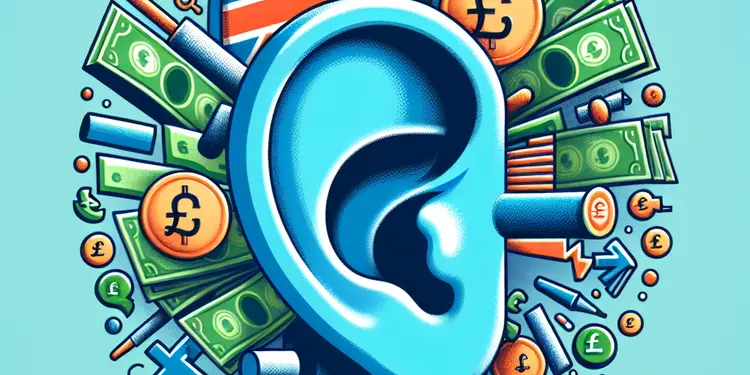
Is ringing in the ears and tinnitus the same thing?
Relevance: 25%
-
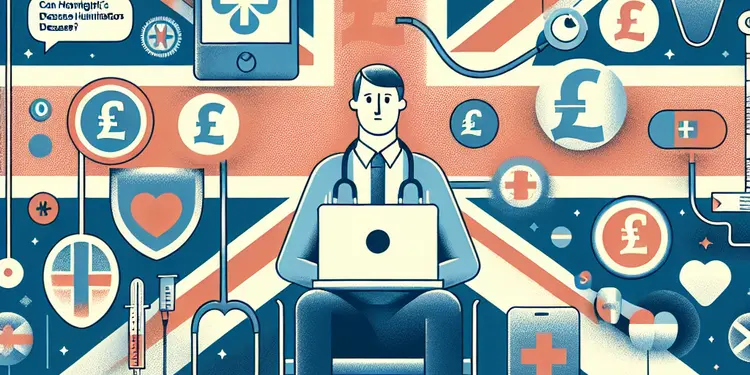
Can Huntington's disease be prevented?
Relevance: 25%
-
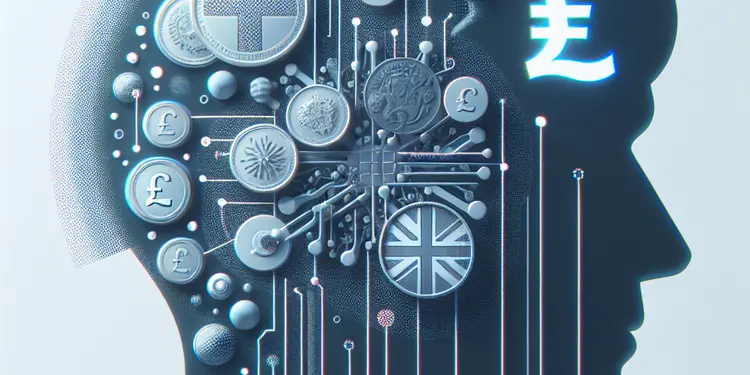
Can Huntington's disease be cured?
Relevance: 24%
Living with Early Stage Kidney Disease
Understanding Early Stage Kidney Disease
Early stage kidney disease, also known as chronic kidney disease (CKD) stages 1-2, signifies slight damage to the kidneys. While it may sound alarming, many people live full, active lives with early stage CKD by managing their health carefully. In the UK, early detection and patient education are key to slowing down the disease's progression and maintaining a high quality of life.Managing Diet and Nutrition
One of the core components of managing early stage kidney disease is adhering to a kidney-friendly diet. This typically involves reducing salt, limiting protein intake, and controlling blood sugar levels if diabetic. UK residents can consult NHS dietitians who specialize in CKD to tailor a personalised meal plan. Foods high in potassium and phosphorus should be monitored and potentially limited.Regular Monitoring and Medical Check-Ups
Regular check-ups with a nephrologist (kidney specialist) are essential. This helps in tracking the disease's progression and adjusting management plans as necessary. Blood pressure control is critical, as hypertension can exacerbate kidney damage. The NHS provides resources and support for consistent follow-up care, including blood tests and urine analysis.Physical Activity and Lifestyle Choices
Staying active is beneficial for overall health and can aid in managing CKD. Engaging in moderate exercise such as walking, cycling, or swimming can help maintain a healthy weight and blood pressure. It's advisable to consult with a healthcare provider before starting any new exercise regimen to ensure it’s safe given the individual's health status.Medications and Treatments
For those in the early stages of kidney disease, medications may be prescribed to control associated conditions like high blood pressure or diabetes. It's crucial to take these medications as directed. The NHS provides an array of treatment options and medication plans to help manage symptoms and complications.Mental and Emotional Well-being
Living with CKD can be mentally and emotionally taxing. In the UK, there are numerous support networks and counselling services available through the NHS to help individuals cope with the psychological impact of the diagnosis. Engaging in stress-reducing activities such as yoga and mindfulness can also be beneficial.Educational Resources and Support
There are many resources available in the UK to help individuals understand and manage CKD. Charities like Kidney Care UK and the National Kidney Federation provide valuable information, support groups, and helplines. By staying informed and proactive, individuals can better navigate the complexities of living with early stage kidney disease. Remember, early diagnosis and proactive management are key to maintaining a good quality of life with early stage CKD. Regular communication with healthcare providers, staying informed about the disease, and making necessary lifestyle adjustments can make a significant difference.Living with Early Stage Kidney Disease
Receiving a diagnosis of early stage kidney disease can be overwhelming. It's important to understand the condition and how lifestyle adjustments can help manage it effectively. In the UK, there's plenty of support available to help you through this journey.
Understanding Early Stage Kidney Disease
Early stage kidney disease, also known as chronic kidney disease (CKD), indicates that the kidneys are not working as well as they should, but the damage is not yet severe. It's crucial to slow down its progression by addressing risk factors such as high blood pressure and diabetes. Regular check-ups with your healthcare provider are essential for monitoring kidney function and implementing necessary lifestyle changes.
Dietary Changes and Nutrition
Diet plays a pivotal role in managing kidney disease. Reducing salt intake can help control blood pressure, a significant factor in kidney health. It's also important to limit foods high in potassium and phosphorus. Consuming lean protein sources and increasing your intake of fruits and vegetables can also support kidney function. Consulting with a dietitian familiar with CKD in the UK can help tailor a diet plan that meets your needs.
Staying Active and Managing Weight
Regular physical activity is beneficial for overall health, including kidney health. Aim for at least 150 minutes of moderate intensity exercise each week, as recommended by NHS guidelines. Maintaining a healthy weight is also crucial, as it can reduce strain on your kidneys and lower blood pressure. Choose activities you enjoy to make staying active a regular part of your life.
Accessing Support and Resources
The UK offers several resources for individuals with early stage kidney disease. The NHS provides comprehensive information and guidance on managing CKD, including access to kidney specialists when needed. Organisations like Kidney Care UK and the National Kidney Federation offer support groups and educational resources to help you understand your condition and connect with others in similar situations.
By taking proactive steps and utilizing available resources, living with early stage kidney disease can be manageable, allowing you to maintain a good quality of life.
Living with Early Stage Kidney Disease
Understanding Early Stage Kidney Disease
Early stage kidney disease is sometimes called CKD stages 1-2. This means the kidneys have a little bit of damage. It might sound scary, but many people live active lives by taking care of their health. In the UK, finding out early and learning about CKD is important. It helps slow down the disease and keeps people feeling well.Managing Diet and Nutrition
Eating the right food is very important with early stage kidney disease. This means eating less salt, eating less protein, and keeping blood sugar levels healthy if you have diabetes. In the UK, the NHS can help. They have dietitians who know about CKD and can make a special meal plan for you. Some foods like bananas and nuts might need to be eaten less.Regular Monitoring and Medical Check-Ups
Seeing a kidney doctor often is very important. It helps keep track of the disease and change plans if needed. Keeping blood pressure low is very important because high blood pressure can hurt the kidneys. The NHS helps people see doctors and get blood and urine tests.Physical Activity and Lifestyle Choices
Moving your body is good for health and helps with CKD. Walking, cycling, or swimming are good exercises. Staying at a healthy weight helps too. Always talk to a doctor before starting a new exercise to make sure it is safe for you.Medications and Treatments
People with early stage kidney disease might take medicine if they have other health problems like high blood pressure or diabetes. It is very important to take medicine as the doctor says. The NHS helps with treatment and medicine plans to manage the disease.Mental and Emotional Well-being
Having CKD can be hard on your feelings and mind. In the UK, the NHS has support and counselling services to help with emotions. Doing things that reduce stress, like yoga or mindfulness, can help too.Educational Resources and Support
In the UK, there are lots of places to learn about CKD. Groups like Kidney Care UK and the National Kidney Federation give information and have support groups and helplines. By learning and staying involved, people can handle living with CKD better. Always remember, finding out early and taking care of your health is important for living well with CKD. Talk often with your healthcare team, learn about the disease, and make lifestyle changes. This can help a lot.Living with Early Stage Kidney Disease
Finding out you have early stage kidney disease can be a lot to take in. It's important to learn about the illness and how changes in your lifestyle can help. In the UK, there is a lot of help available to guide you.
Understanding Early Stage Kidney Disease
Early stage kidney disease means your kidneys are not working as well as they should, but they are not badly damaged. To stop it from getting worse, you need to manage things like high blood pressure and diabetes. You should visit your doctor regularly to check how your kidneys are doing and see what changes you might need to make.
Dietary Changes and Nutrition
What you eat can help with kidney disease. Eating less salt can help keep your blood pressure down, which is good for your kidneys. Try to eat less food that has a lot of potassium and phosphorus. It’s also good to eat lean meats and more fruits and vegetables. A dietitian who knows about kidney disease can help plan what you eat.
Staying Active and Managing Weight
Being active is good for your kidneys and your whole body. The NHS says you should try to do at least 150 minutes of exercise every week. Keeping a healthy weight is important because it helps your kidneys and keeps your blood pressure low. Do fun activities to stay healthy.
Accessing Support and Resources
There is a lot of help in the UK for people with early stage kidney disease. The NHS has lots of information to help you manage the disease and see kidney doctors if needed. Groups like Kidney Care UK and the National Kidney Federation can help you learn more and meet other people with the same condition.
By doing the right things and getting help, you can live well with early stage kidney disease and have a good life.
Frequently Asked Questions
What is early stage kidney disease?
Early stage kidney disease, also known as chronic kidney disease (CKD), means your kidneys are not working as well as they should be. In the early stages, there may not be any symptoms. It's important to diagnose it early to manage it and slow the progression.
What are the symptoms of early stage kidney disease?
In the early stages, there may not be any noticeable symptoms. As the condition progresses, symptoms may include tiredness, swollen ankles, feet or hands, shortness of breath, and blood in the urine.
How is early stage kidney disease diagnosed?
Early stage kidney disease is usually diagnosed through blood tests that check how well your kidneys are working (e.g., eGFR test) and urine tests to check for protein or blood in your urine.
What causes early stage kidney disease?
Common causes include high blood pressure, diabetes, and a family history of kidney disease. Other causes can be glomerulonephritis, polycystic kidney disease, and prolonged obstructive uropathy.
Can early stage kidney disease be treated?
While there's no cure for chronic kidney disease, treatment can help relieve symptoms, prevent complications, and slow the disease's progression. Treatments include medication, diet, and exercise.
What dietary changes are recommended for someone with early stage kidney disease?
A kidney-friendly diet usually involves eating less salt, reducing protein and phosphorus intake, and controlling potassium levels to help your kidneys function better.
Is drinking water beneficial for early stage kidney disease?
Staying hydrated is important, but it is also crucial not to overconsume fluids, especially if your kidney function is reduced. Your doctor can provide specific guidance based on your condition.
Should I avoid alcohol with early stage kidney disease?
It's advisable to limit alcohol as it can increase blood pressure and add extra burden to your kidneys. Consult your healthcare provider for personalised advice.
Is regular exercise beneficial for someone with early stage kidney disease?
Regular exercise is beneficial as it can help lower blood pressure, improve heart health, and maintain a healthy weight, all of which are important in managing kidney disease.
Can smoking affect kidney disease?
Yes, smoking can worsen kidney disease as it damages blood vessels, increases blood pressure and heart rate, and reduces the efficiency of medications.
What medications might I need for early stage kidney disease?
Medications could include those to control blood pressure, manage diabetes, lower cholesterol levels, and treat anaemia, among others. Always follow your doctor's guidance.
What is an eGFR test and why is it important?
The estimated glomerular filtration rate (eGFR) test measures how well your kidneys are filtering blood and helps in determining the stage of kidney disease. It's crucial for monitoring kidney function over time.
Can I travel if I have early stage kidney disease?
Yes, but it's important to plan ahead. Discuss your travel plans with your healthcare provider to ensure you have adequate medication and access to medical care if needed.
How often should I see my doctor about my kidney disease?
The frequency of visits will depend on the progression of your disease and your individual situation, but generally, regular follow-ups every few months are common.
Can supplements help with kidney disease?
Certain supplements can interfere with medication or impact kidney function negatively. Always discuss with your healthcare provider before starting any supplements.
What is early stage kidney disease?
Early stage kidney disease means your kidneys are not working as well as they should. Your kidneys are important because they clean your blood. At the early stage, you might not feel sick. It is important to have regular check-ups with your doctor.
To help understand, you can:
- Ask someone to explain it to you.
- Use pictures to learn more about kidneys.
- Watch videos about kidney health.
Remember, your kidneys help keep your body healthy!
Early stage kidney disease is when your kidneys are not working well. It is also called CKD. At first, you might not feel any different. It is important to find out early so you can get help and slow it down.
What signs show early kidney problems?
Your kidneys are like filters for your blood. If they have trouble, you might notice these signs:
- You feel more tired than usual.
- Your hands or feet might swell.
- You need to pee more, especially at night.
- Your pee is foamy or has blood.
- You have itchy skin.
- You feel sick to your stomach.
If you think something might be wrong, tell a doctor or ask someone you trust to help. Sometimes, a simple test or talking to a doctor can help you feel better.
At first, you might not notice anything wrong. But later on, you might feel very tired. Your ankles, feet, or hands might get puffy. It might be hard to breathe, and you could see blood in your pee.
Here are some tools and tips that might help you:
- Use a calendar to keep track of how you feel each day.
- Ask someone you trust if you need help reading or remembering this information.
- Visit a doctor if you have any of these symptoms.
How do doctors find out if someone has early kidney disease?
Doctors can find kidney disease early with tests. They use blood tests to see how your kidneys work. One test is called eGFR. They also check your pee to look for protein or blood.
What makes kidney disease start early?
Kidneys are important because they clean your blood. They help get rid of waste and extra water. Sometimes, kidneys start to have problems working well. This can happen early and is called early stage kidney disease.
Here are some things that can make early stage kidney disease happen:
- High blood sugar, which happens in diabetes.
- High blood pressure, which means the blood moves through your body too strongly.
- Too much harmful fat or cholesterol in the blood.
- Infections or swelling of the kidneys.
- Some medicines that are not good for the kidneys.
It's important to visit a doctor or nurse if you have any worries about your kidneys. They can do tests to check your kidneys.
Here are some ways to help yourself:
- Eat healthy foods and drink lots of water.
- Don't eat too much salt or sugar.
- Exercise to keep your body strong.
- Take any medicine the doctor gives you.
There are some common reasons why kidneys might get sick. One reason is if your blood pressure is too high. Another reason might be if you have diabetes. If other people in your family have had kidney problems, that can be a reason too.
Sometimes, kidneys can get sick because of something called glomerulonephritis. Another reason is a disease that makes cysts on the kidneys called polycystic kidney disease. Kidneys can also have trouble if something blocks them for a long time.
Can we help kidney problems early on?
Yes, we can help if we find kidney problems early. Doctors can give you special medicine. Eating healthy food, drinking water, and exercising can also help. Talk to a doctor if you have questions.
If reading is hard, you can use tools like audiobooks or ask someone to read with you. It’s okay to ask for help.
There is no way to make kidney disease go away completely. But treatment can help make you feel better and stop things from getting worse. You can take medicine, eat healthy foods, and do exercises to help.
What food changes are good for early kidney problems?
If you have early kidney problems, changing what you eat can help. Here are some easy tips:
- Eat less salt: Try to use less salt in your meals. Salt can make your kidneys work harder.
- Drink enough water: Water helps your kidneys stay healthy. Drink water instead of sugary drinks.
- Eat more fruits and veggies: They are good for your health. Try to eat different kinds of fruits and vegetables.
- Choose whole grains: Foods like brown rice and whole wheat bread are better for you.
- Watch your protein: Don't eat too much meat or fish. Eating too much can be hard on your kidneys.
It might help to talk to a doctor or a dietitian. They can help you choose the right foods.
A kidney-friendly diet is a way of eating to help your kidneys work well. It means eating less salt, less protein, and less phosphorus. You also keep an eye on how much potassium you eat.
Here are some tips:
- Eat more fresh fruits and veggies.
- Choose foods with less salt. Look for "low-salt" labels.
- Eat smaller portions of meat, fish, or chicken.
- Drink lots of water.
There are some tools that can help you:
- Use a food diary to track what you eat.
- Ask a trusted adult or a dietitian for advice.
Is drinking water good for early stage kidney disease?
Drinking water can help your kidneys stay healthy. It is good to drink water to keep your body working well. If you have early stage kidney disease, ask your doctor how much water is right for you.
Some helpful tips:
- Try using a water bottle to drink more water during the day.
- Set reminders to drink water regularly.
- Talk to a doctor or nurse to know what is best for you.
Drinking water is very important. But don't drink too much if your kidneys aren't working well. Your doctor will tell you how much to drink.
Is it okay to drink alcohol if my kidneys are not very healthy?
Try not to drink too much alcohol. It can make your blood pressure go up and is not good for your kidneys. Talk to your doctor to get advice just for you. Using pictures or apps can help you understand this better.
Is exercising good for someone with early kidney problems?
Exercise means moving your body and staying active. It can help make you feel better and be healthy.
If you have early kidney problems, ask your doctor if you can exercise. They will help you understand what is safe for you.
You can try walking, swimming, or gentle stretching. Always listen to your body and rest if you feel tired.
Here are some tips to stay safe while exercising:
- Drink water to stay hydrated.
- Start with short activities and slowly do more as you feel stronger.
- Use a timer or ask someone to remind you when to stop for a rest.
Remember, it is okay to ask for help or support if you need it. Stay safe and take care of your body.
Exercise is good for you! It helps keep your heart healthy, makes your blood pressure lower, and helps you stay the right weight. These are all important for taking care of your kidneys.
Here are some tools and tips to help you exercise:
- Start slowly with walks or gentle exercises.
- Use a fitness app or a pedometer to count your steps.
- Ask a friend to exercise with you for support.
- Take breaks when you need to.
Does smoking harm your kidneys?
Smoking is bad for your kidneys. It can make kidney disease worse. If you have kidney problems, try to quit smoking. It will help your kidneys stay healthy.
To stop smoking, you can:
- Ask a doctor for help.
- Use special patches or gum.
- Join support groups like "Quit Smoking" programs.
Yes, smoking can make kidney disease worse. It hurts your blood vessels, makes your blood pressure and heart rate go up, and makes medicines work less well.
What medicine do I need for early kidney problems?
Medicines can help with different health problems. Some medicines keep your blood pressure normal. Others help if you have diabetes, make your cholesterol lower, or fix anaemia. Always listen to your doctor about taking your medicines.
What is an eGFR test and why is it important?
An eGFR test checks how well your kidneys are working. Your kidneys help keep your blood clean and healthy. This test is important because it can show if your kidneys need help.
If you find it hard to understand, you can ask someone to read with you. You can also use pictures to help you learn.
The eGFR test checks how well your kidneys clean your blood. It helps doctors find out what stage your kidney disease is in. This test is important to see how your kidneys are working over time.
Can I travel if I have early stage kidney disease?
If you have early stage kidney disease, you might be wondering if you can travel. Here are some things to help you:
- Talk to your doctor before you go. They can tell you what you need to know.
- Make sure you have all your medicine packed.
- Think about drinking enough water and eating healthy food. This is important for your kidneys.
- Plan where you can get help if you feel sick while you are traveling.
- If you can, travel with someone who can help you.
Using a planner can help you remember all you need. Have a safe trip!
Yes, you can, but you need to think ahead. Talk to your doctor about your travel plans. Make sure you have enough medicine and know where to go if you need help.
Tip: Make a list of all your medicines and keep it in your bag. You can also use a phone app to remind you when to take your medicine.
How often do I need to visit my doctor for my kidney problem?
It is important to see your doctor to take care of your kidneys. Your doctor will tell you how often you need to visit. Usually, people see their doctor every few months. Ask your doctor to help you understand what is best for you.
Here are some tips to help you remember:
- Use a calendar or diary to write your appointments down.
- Set up reminders on your phone or ask someone to remind you.
- Make a list of questions to ask your doctor.
How often you visit the doctor depends on how you are feeling and your health. Usually, people go to the doctor every few months. Regular check-ups are important.
Can vitamins or pills help if you have kidney problems?
Sometimes, vitamins and pills can help when your kidneys are not working well. But you should always talk to a doctor before taking them. They can tell you what is safe.
Here are some tips that can help:
- Ask a Doctor: Ask a doctor if a vitamin or pill is good for you.
- Stay Informed: Read easy guides about kidneys to learn more.
- Use Apps: Apps for health can remind you to take medicines.
- Get Help: Family or friends can help you keep track of what you take.
Some supplements can cause problems with medicine or hurt your kidneys. Talk to your doctor before taking any supplements.
Useful Links
This website offers general information and is not a substitute for professional advice.
Always seek guidance from qualified professionals.
If you have any medical concerns or need urgent help, contact a healthcare professional or emergency services immediately.
Some of this content was generated with AI assistance. We’ve done our best to keep it accurate, helpful, and human-friendly.
- Ergsy carfully checks the information in the videos we provide here.
- Videos shown by Youtube after a video has completed, have NOT been reviewed by ERGSY.
- To view, click the arrow in centre of video.
- Most of the videos you find here will have subtitles and/or closed captions available.
- You may need to turn these on, and choose your preferred language.
- Go to the video you'd like to watch.
- If closed captions (CC) are available, settings will be visible on the bottom right of the video player.
- To turn on Captions, click settings .
- To turn off Captions, click settings again.
More Items From Ergsy search
-

Living with early stage kidney disease
Relevance: 100%
-

What is my risk of kidney failure with CKD (chronic kidney disease) | UHL NHS Trust
Relevance: 55%
-

What are the stages of Alzheimer's disease?
Relevance: 52%
-

Chronic kidney disease: What are the treatments?
Relevance: 50%
-

What causes chronic kidney disease?
Relevance: 50%
-

What should I eat to help with chronic kidney disease?
Relevance: 46%
-

NHSGGC - Diet and Chronic Kidney Disease (CKD)
Relevance: 43%
-

How can carers plan for future stages of Alzheimer's disease?
Relevance: 38%
-

What are the stages of testicular cancer?
Relevance: 37%
-

Patient Stories - Having a kidney transplant
Relevance: 36%
-

Having a kidney transplant
Relevance: 36%
-

What symptoms can overlap between menopause and the early stages of dementia?
Relevance: 35%
-

Does Ozempic have an impact on kidney function?
Relevance: 34%
-

How is the stage of bowel cancer determined?
Relevance: 34%
-

What are kidney stones?
Relevance: 33%
-

Early onset dementia | NHS
Relevance: 32%
-

Stage One Paperwork | UK Adoption Journey
Relevance: 32%
-

Matthew's Story: Kidney Transplant - Part 1
Relevance: 31%
-

Can Lyme disease be treated?
Relevance: 30%
-

What are common symptoms of Lyme disease?
Relevance: 29%
-

Kidney transplant waiting stories – DJ Ace and Lauren | NHS Organ Donation
Relevance: 28%
-

Is Huntington's disease fatal?
Relevance: 28%
-

Prostate cancer symptoms - detecting them early
Relevance: 28%
-

What kind of ticks carry Lyme disease?
Relevance: 28%
-

How effective are antibiotics in treating Lyme disease?
Relevance: 28%
-

What are the benefits of early detection of type 1 diabetes?
Relevance: 27%
-

What is Lyme Disease?
Relevance: 27%
-

What is the typical progression of Marburg virus disease?
Relevance: 26%
-

Glue Ear Pathway
Relevance: 26%
-

What is Alzheimer's disease?
Relevance: 26%
-

What are the symptoms of Marburg virus disease?
Relevance: 26%
-

Lyme disease: What is it?
Relevance: 26%
-

What tests are available for diagnosing Lyme disease?
Relevance: 26%
-

What happens if Lyme disease is left untreated?
Relevance: 25%
-

What are the symptoms of flesh-eating disease?
Relevance: 25%
-

UK Adoption Journey | What we did to prepare | Stage One Update
Relevance: 25%
-

Can ear infections lead to tinnitus?
Relevance: 25%
-

Is ringing in the ears and tinnitus the same thing?
Relevance: 25%
-

Can Huntington's disease be prevented?
Relevance: 25%
-

Can Huntington's disease be cured?
Relevance: 24%


